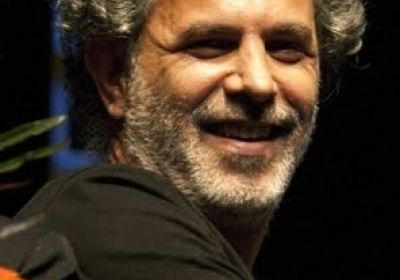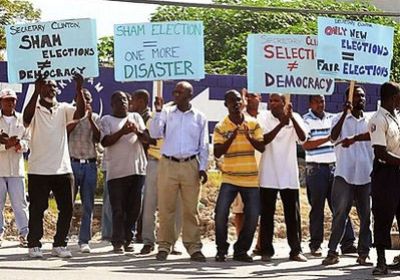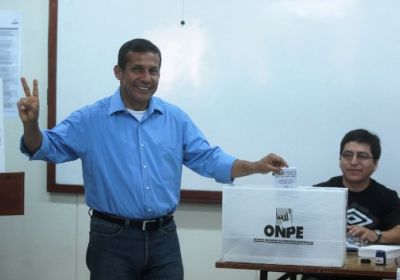Europe’s biggest polluters have made billions out of the European Emissions Trading System (ETS). But a new briefing by Carbon Trade Watch (CTW) says the scheme will ensure industry will not have to cut its emissions until at least 2017.
The ETS sets a cap, or upper limit, on total emissions for 11,000 power stations and industrial plants in 30 European countries. Each company receives permits to pollute, which can be traded with other companies.
-
-
 Since January, tens of thousands of United Socialist Party of Venezuela (PSUV) militants, together with activists from other left parties and social movements, have been debating the future of Venezuela’s revolution. Their sights are set on the crucial 2012 presidential elections. This years’ pro-revolution May Day march will be the platform to officially launch Venezuelan President Hugo Chavez’s re-election bid. The US-funded right-wing opposition is yet to decide its candidate, but the election will be critical to the future of a country undergoing a profound process of change.
Since January, tens of thousands of United Socialist Party of Venezuela (PSUV) militants, together with activists from other left parties and social movements, have been debating the future of Venezuela’s revolution. Their sights are set on the crucial 2012 presidential elections. This years’ pro-revolution May Day march will be the platform to officially launch Venezuelan President Hugo Chavez’s re-election bid. The US-funded right-wing opposition is yet to decide its candidate, but the election will be critical to the future of a country undergoing a profound process of change. -
 Pablo Solon, Bolivia’s permanent representative to the United Nations, made the speech below at an April 20 session of the UN general assembly. * * * Victor Hugo, the author of Les Miserables, once wrote: “How sad to think that nature speaks and mankind doesn’t listen.” We are here today to attempt to have a dialogue not just among states, but also with nature. Although we often forget it, human beings are a force in nature.
Pablo Solon, Bolivia’s permanent representative to the United Nations, made the speech below at an April 20 session of the UN general assembly. * * * Victor Hugo, the author of Les Miserables, once wrote: “How sad to think that nature speaks and mankind doesn’t listen.” We are here today to attempt to have a dialogue not just among states, but also with nature. Although we often forget it, human beings are a force in nature. -
 Wall Street has continued erecting monuments to its own greed. The British Guardian reported on April 12 that Goldman Sachs’ paid its top five directors almost US$70 million in 2010. The latest United States Department of Labor’s Bureau of Labor Statistics report, released on 27 July 2010, said civilian workers’ median hourly wage was $16.55. Private industry workers received $15.70 and state and local government workers received $22.04. The top Goldman Sachs directors, on the other hand, earned an average $38,356 each day for 2010.
Wall Street has continued erecting monuments to its own greed. The British Guardian reported on April 12 that Goldman Sachs’ paid its top five directors almost US$70 million in 2010. The latest United States Department of Labor’s Bureau of Labor Statistics report, released on 27 July 2010, said civilian workers’ median hourly wage was $16.55. Private industry workers received $15.70 and state and local government workers received $22.04. The top Goldman Sachs directors, on the other hand, earned an average $38,356 each day for 2010. -
Only days before Peru’s general elections on April 10, three protesters were killed and dozens injured by firearm-wielding police near the southern city of Arequipa. The protesters were taking part in a community uprising against the Tia Maria copper mine proposed by Mexican-based, US-funded Southern Copper. The company has one of the worst environmental track records of any mining company active in Peru. Fearing that the mine would irredeemably contaminate local water, the residents of Islay took to the streets, despite realising it would put their lives at risk.
-
Two wars are being waged simultaneously in Libya. One has grown out of a revolutionary struggle for democracy. The other is an attempt by imperialism to strengthen its domination of the country. Both wars appear to share the goal of “regime change”, but they stand at opposite ends of the political spectrum. The regime change that the revolutionary struggle seeks to achieve is the overthrow of the Muammar Gaddafi dictatorship and the establishment of a system of democratic rule.
-
Richard Seymour (“Libya: Spring time for NATO”, GLW #876) has done an admirable job debunking justifications of “humanitarian” wars and its defenders. But his analysis of the internal dynamics of Libya leads him astray — so much so that bold assertions are taken as facts with nothing to back it up. He says the co-option of the Libyan revolution by NATO is a victory for reaction. Then he says it is no good hoping that the militias will shake themselves free of such constraints if they take power.
-
Pro-democracy protesters in Yemen have shown their determination for real change by rejecting a proposal that would allow hated President Ali Abdullah Saleh to leave power on his own terms and escape prosecution for his crimes. In the face of ongoing repression, the opposition rejected a proposal from the Gulf Cooperation Council (GCC) and maintained their demand that Saleh leave immediately, Al Jazeera said on April 11.
-
 A life dedicated to creative non-violent resistance against the Israeli occupation of Palestine was cut short when Juliano Mer-Khamis was shot dead by unknown masked gunman in the West Bank town of Jenin on April 4. Mer-Khamis was an Israeli citizen, born to a Jewish mother and a Palestinian Christian father. In 2009, Mer-Khamis told Israeli army radio: “I am 100% Palestinian and 100% Jewish.” At the time of his death, Mer-Khamis was just 52-years-old. He was a father and a husband.
A life dedicated to creative non-violent resistance against the Israeli occupation of Palestine was cut short when Juliano Mer-Khamis was shot dead by unknown masked gunman in the West Bank town of Jenin on April 4. Mer-Khamis was an Israeli citizen, born to a Jewish mother and a Palestinian Christian father. In 2009, Mer-Khamis told Israeli army radio: “I am 100% Palestinian and 100% Jewish.” At the time of his death, Mer-Khamis was just 52-years-old. He was a father and a husband. -
 Haiti finds itself with a president-elect with ties to the extreme right — thanks to a concerted effort by foreign powers to continue thwarting the social justice aspirations of the Haitian people. President-elect Michel Martelly is closely associated with the forces that overthrew elected governments in 1991 and 2004. He told Canadian Broadcasting Corporation (CBC) Radio’s The Current on April 7 that Haiti has been “going in the wrong direction for the last 25 years”.
Haiti finds itself with a president-elect with ties to the extreme right — thanks to a concerted effort by foreign powers to continue thwarting the social justice aspirations of the Haitian people. President-elect Michel Martelly is closely associated with the forces that overthrew elected governments in 1991 and 2004. He told Canadian Broadcasting Corporation (CBC) Radio’s The Current on April 7 that Haiti has been “going in the wrong direction for the last 25 years”. -
 Peruvians went to the polls to elect a new president on April 10. In a first round result reminiscent of the 2006 election, the electorate has sent the previously languishing “left-nationalist” candidate Ollanta Humala (of the Gana Peru alliance) through to the presidential runoff on June 5. As in 2006, Humala will face a candidate representing elite interests: Keiko Fujimori, the daughter of ex-president and architect of Peru’s neoliberal development model, Alberto Fujimori.
Peruvians went to the polls to elect a new president on April 10. In a first round result reminiscent of the 2006 election, the electorate has sent the previously languishing “left-nationalist” candidate Ollanta Humala (of the Gana Peru alliance) through to the presidential runoff on June 5. As in 2006, Humala will face a candidate representing elite interests: Keiko Fujimori, the daughter of ex-president and architect of Peru’s neoliberal development model, Alberto Fujimori. -
The Bahraini government has ordered the dissolution of two opposition political parties. The move is part of its crackdown against the pro-democracy movement that broke out in February. The al-Wefaq and al-Amal parties were ordered to dissolve for “threatening peace”. The order is in response to their involvement in the protests that called for the removal of the Khalifah royal family, which has ruled the country for more than 200 years, the April 14 Washington Post said.